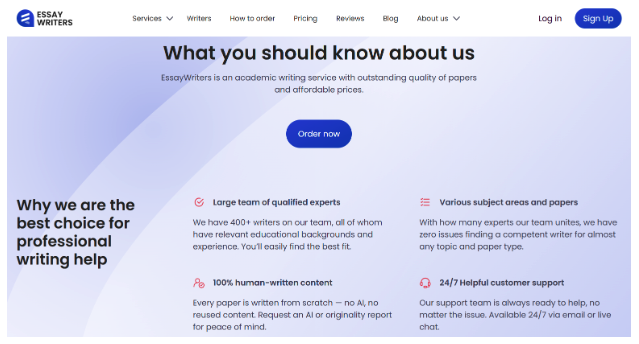When Your Favorite Coworker Leaves
Nothing makes you second guess your employer more than when your favorite coworker leaves. In the past my wife has often joked about me having a work wife as well. You and your coworkers go to lunch together, sit in the same boring meetings and share texts about how this could have been an email, and share your weekend plans and parenting tips. Work relationships are often very deep relationships and when one of them ends because a coworker quits, it can be a big blow to your life.
In this article, I will break down:
the importance of understanding why your coworker is leaving;
how to communicate with a coworker who is leaving;
how to cope with the loss of your favorite coworker;
how to move forward with your career;
and I’ll include some email scripts to use in order to stay professional.
Understanding Why Your Coworker is Leaving
When a favorite coworker decides to leave, it can be a shock to the system. It's important to understand why they are leaving in order to process your own feelings and respond appropriately. Some common reasons for leaving include:
a better job opportunity with more money
a desire to relocate or have a shorter commute
personal reasons such as health or family reasons
a difference in opinion with a manager or company business practices
a bad performance review
the desire to find work that is more challenging and rewarding
outgrowing the position they were in (this could be a promotion)
a better work environment or better management relationship
the desire for more freedom or more structure
a layoff or they were fired
retirement
It's important to communicate with the leaving coworker to understand their motivations and to offer support during this transition. The reason behind their choice to leave could provide insights into your future as well.
While it's natural to feel sad or disappointed when a favorite coworker leaves, it's important to be supportive and celebrate their achievements. This may involve planning a goodbye celebration, writing a heartfelt card or message, or simply taking the time to express your appreciation for their contributions to the workplace. This not only shows your coworker that they will be missed, but it also helps to maintain positive relationships with colleagues who are leaving.
Furthermore, understanding the reasons for their departure can also help you reflect on your own career goals and priorities. Perhaps there are opportunities for growth or development within your current workplace that you had not previously considered, or perhaps the departure of a favorite coworker is a reminder to focus on your own personal and professional development.
In short, understanding why a coworker is leaving is an important step in coping with their departure. It helps to process your own feelings, support your colleagues, and find opportunities for growth and development.
Communicating with a Leaving Coworker
There’s no one size fits all approach for how you will communicate with a leaving coworker. Some companies will walk an employee out the door immediately after they put in their notice and no one is given a chance to say goodbye. Some companies will accept the notice. Some coworkers won’t give notice. There are so many situations that could develop depending on the reason your coworker is leaving. Let’s discuss communicating with a coworker who isn’t leaving immediately.
When a favorite coworker decides to leave, it's important to communicate with them to understand their motivations and express your support during their transition. It can be difficult to approach the conversation, but it's important to take the initiative to show that you care and value their contributions to the workplace.
First, it's important to schedule a time to talk with your leaving coworker. This could be a casual coffee break or a more formal meeting. Be sure to express your appreciation for their work and ask them about their future plans. This can help to ease the transition and show that you are interested in their success. Here are some sample emails you could send.
Second, it's important to ask if there is anything you can do to help during their transition. This could be helping to train a replacement or simply offering to provide a reference or recommendation in the future. This not only shows your support for your leaving coworker but also helps to maintain positive relationships that could be valuable in the future.
Third, it's important to maintain contact with your leaving coworker after they depart. This can include keeping in touch through social media or scheduling occasional catch-up calls. I have several ex-coworkers that I call once a month. This helps me stay in touch with them, keeps our relationship moving forward, and gives me a network of professionals I could call should I need help with a business problem or if I need a new job. Staying connected with your former colleague can help to maintain positive relationships and provide opportunities for future collaboration.
Fourth, make sure you are positive and supportive. If a coworker opens up to you about why they are leaving, don’t judge them. Validate their feelings and keep an open mind in both positive and negative situations. You don’t know what your future looks like and you don’t want to say something you’ll regret later.
Lastly, avoid any gossip. Whatever your coworker shares with you should be held in confidence. The last thing you want is a breakdown in trust because you gossip about something they told you.
Communicating with a leaving coworker is an important step in supporting their transition and maintaining positive relationships. It's important to express your appreciation for their work, ask about their future plans, and offer support where possible. Additionally, maintaining contact after they depart can help to maintain positive relationships that could be valuable in the future.
Email Templates to Use When a Coworker is Leaving
Script 1 - Scheduling a Meeting With a Coworker
I just heard the news that you were leaving. We should grab a coffee this week. If I can help with the transition, I’m only an email away.
Script 2 - Congrats on Retirement
Congrats on your retirement. You’ve been such an influence on my career and time here. You will be missed, but I can’t wait to hear about your post-retirement activities.
Script 3 - Scheduling a Meeting With a Boss Leaving
I heard that you were leaving soon for a new job. I would love to grab lunch before you move. I’ve learned so much from you since I’ve been here. I hope you continue to mentor your new team the way you have with me. You’ve been one of the best leaders I’ve worked with and I hope you’ll stay in touch.
Coping with the Loss of a Coworker
When you find out your favorite coworker is leaving, you experience a loss. Grief is sorrow caused by a loss. It’s natural to feel a sense of grief. You may feel sadness, disappointment, or even anger at the situation. Coping with the loss of a coworker requires recognizing and processing these emotions, and understanding that it's okay to take time to grieve.
The grieving process may involve a range of emotions and can vary from person to person. Some common emotions during the grieving process may include denial, anger, bargaining, depression, and acceptance. It's important to recognize these emotions as a natural part of the process and to allow yourself to experience them.
In my experience, these stages of grief often look like shock, the desire to question the coworker for answers and about their decision, a feeling of excitement for your coworker, stress about how things will change, and then acceptance of setting into a new groove.
Express Feelings With Other Coworkers
One way to cope with the loss of a coworker is to express your feelings with other colleagues who are also experiencing the same loss. This can be a way to share your emotions and provide mutual support. You can also reach out to friends or family outside of work who can provide a listening ear and emotional support.
It's important to approach the conversation in a supportive and respectful manner. Start by acknowledging the loss and expressing your own feelings. Ask others how they are feeling and give them the space to share their emotions as well. Listening actively and being empathetic can help create a safe and supportive environment.
Sharing positive memories or experiences of the leaving coworker can also be a helpful way to celebrate their contributions and maintain positive relationships with colleagues. This can help to ease the transition and show that their impact on the workplace will be remembered.
It's important to remember that everyone copes with loss differently and may have different emotions or perspectives on the situation. Be respectful of others' feelings and opinions and try to approach the situation with an open mind.
Expressing your feelings with other coworkers who are also experiencing the loss of a favorite colleague can be a helpful way to cope with the situation. It's important to approach the conversation in a supportive and respectful manner, listen actively, and be empathetic to others' feelings. Sharing positive memories can also help to celebrate the leaving coworker's contributions and maintain positive relationships with colleagues.
Take Time to Process
It's also important to take care of yourself during this process. This may involve taking time off work, practicing self-care such as exercise or meditation, or seeking professional help if needed. There have been times when I’ve taken two or three days off to process the loss of a coworker. There is nothing wrong with this. If you have the vacation time, take it.
Taking time to process can help you to gain perspective on the situation and understand your own emotions. It can also provide an opportunity to reflect on the leaving coworker's contributions and your own role in the workplace.
It's important to recognize that the grieving process can take time and may vary from person to person. It's okay to take the time you need to process your emotions and adjust to the new workplace dynamic.
Adjusting to the New Workplace Dynamic
In addition to coping with the loss of a coworker, it's important to adjust to the new workplace dynamic. This may involve taking on new responsibilities or building new relationships with other coworkers. It's important to recognize that change can be challenging but can also present opportunities for personal and professional growth.
Find Growth Opportunities
One way to adjust to the new workplace dynamic is to take on new responsibilities or projects. This can help you to develop new skills and show that you are adaptable to change. This could be a great opportunity to build your resume. It may also provide an opportunity to step into a leadership role and demonstrate your value to the team.
When one of my coworkers retired, I showed interest in helping her transition and ended up acquiring new projects, new contacts, and a seat on the board of directors for the Institute of Management Accountants.
Build New Relationships
Building new relationships with other coworkers can also be an important part of adjusting to the new workplace dynamic. This may involve reaching out to colleagues you haven't worked closely with before or building stronger relationships with existing colleagues. Networking events or team-building activities can also be a helpful way to connect with others in the workplace.
It's important to maintain a positive attitude and embrace the changes that come with the departure of a coworker. Recognize that change can be challenging but can also present opportunities for growth and development.
Maintaining Relationships With Leaving Coworkers
In addition to adjusting to the new workplace dynamic, it's important to maintain positive relationships with the leaving coworker if possible. This may involve staying in touch through social media or email, or scheduling occasional catch-ups to stay connected. Before your coworker leaves, find a medium to stay in touch. I have several ex-coworkers connected to me on social media and others I text and call regularly. I’ll talk more about this later.
u/An_Arrogant_Ass / Via reddit.com
Dealing With Changes in Responsibilities
When a coworker leaves, it's common for there to be changes in workload and responsibilities among the remaining team members. You may experience extra hours or new duties.
This can be a challenging adjustment, but there are strategies you can use to effectively manage your workload and navigate the changes.
First, it's important to communicate with your supervisor about any changes in workload or responsibilities. Make sure you have a clear understanding of what is expected of you and what tasks or projects you will be taking on.
If the workload is overwhelming, consider prioritizing tasks and delegating responsibilities to other team members if possible. It may also be helpful to set realistic goals and timelines for completing tasks and projects to avoid becoming overwhelmed.
It's also important to be open to learning new skills and taking on new challenges. Embracing new responsibilities and opportunities can help you to develop new skills and demonstrate your value to the team.
If you're feeling overwhelmed, it's important to prioritize self-care and find ways to reduce stress. This may involve taking breaks throughout the day, practicing mindfulness or meditation, or engaging in other self-care activities. When I felt overwhelmed with additional duties, I would schedule a couple of walks during the day to decompress and clear my mind.
If you know ahead of time that you will be taking on some of your leaving coworker’s duties, schedule time with them as soon as possible to start the handover process. Don’t wait until the last few days or for your manager to schedule the time. Some people aren’t very organized and it may take longer than anticipated to learn new information or processes. The more time you have with your leaving coworker, the better. This will help you feel less stressed later.
Finally, be patient with yourself and recognize that it may take time to adjust to the changes in workload and responsibilities. Don't be afraid to ask for help or guidance from your supervisor or other team members if needed.
Impact on Workplace Culture
The departure of a work friend can have a significant impact on workplace culture. The leaving coworker may have been a key contributor to the workplace culture, bringing positive energy, humor, or a strong work ethic. Without them, the workplace may feel different, and the team may need to work to rebuild and maintain a positive workplace culture.
However, the departure of a coworker can also present opportunities for positive change. The team may be forced to come together to find new ways to collaborate and communicate effectively. This can lead to the development of new skills and the strengthening of relationships among team members.
It's important for managers and leaders to be aware of the impact of a coworker's departure on workplace culture and to take steps to support the team through the transition. This may involve holding team-building activities, offering counseling or support services, or providing opportunities for professional development to help team members cope with the changes.
Coworkers can also play a role in maintaining a positive workplace culture. This may involve showing empathy and support for colleagues who may be struggling with the departure of a coworker. It may also involve being open to new ways of working and adapting to changes in the workplace dynamic.
While a workplace shakeup may present challenges, it can also provide opportunities for positive change and growth. Managers and coworkers alike can play a role in supporting the team through the transition and maintaining a positive workplace culture.
Maintaining Contact After Your Favorite Coworker Leaves
Earlier I mentioned the importance of having a way to stay in touch with your leaving coworker. Whether it’s to keep in touch socially or to continue collaborating professionally, there are ways to stay connected even after they’ve left the workplace.
First, it's important to respect your former coworker's privacy and boundaries. While they may appreciate your continued interest and support, they may also need space to adjust to their new role or workplace. It's important to communicate openly and honestly with them to understand their preferences and boundaries.
One way to maintain contact is through social media. Platforms like LinkedIn or Twitter can be a great way to stay connected professionally and keep up with their latest projects and accomplishments. You can also use these platforms to congratulate them on milestones or offer your support and encouragement. I have many former colleagues who I stay connected with on LinkedIn and Facebook.
Another option is to schedule regular catch-up calls or video chats. These can be a great way to stay in touch socially and to continue collaborating on projects or brainstorming new ideas. You can also use these conversations to ask for feedback or advice on your own work or career goals. There are some colleagues who I was especially close with and we still have our families get together from time to time. Others have gone into leadership positions and I have regular calls scheduled to stay in touch.
Finally, you can consider organizing social events or meetups with former coworkers, including the ones who left. These can be a great way to reconnect and maintain strong relationships beyond the workplace. You can also use these events to network with other professionals and expand your own career opportunities.
Maintaining contact after a coworker leaves is incredibly important. Relationships take time to develop. Most likely, you’ve spent a lot of time with your coworker before they left the company. You’ve built up the social currency and trust. Maintaining contact is how you can build a network of peers and managers who can give you professional advice, mentorship, or help you advance your own career.
I can personally say I have three former coworkers who I could call today and have a job tomorrow. Those are incredibly valuable relationships. Moreover, I have many former coworkers whom I still call for parenting advice and even tips on my garden. Whether it’s for social or professional, or both - maintain contact with your former coworkers.
What if a Coworker Goes to a Competitor
I’ve had coworkers take new jobs at competitors. This can be a bit more stressful to navigate depending on their exit. At one company we were practically brainwashed to think that most of our competitors were terrible people who performed poorly. When one of my colleagues left, it was tough to deal with.
First, don’t buy the rumors. Whether they are good or bad, you never know where the grass is really greener. It’s important to follow the previous advice of being supportive and positive.
Second, don’t broadcast when you talk to your former coworker. Different people at your employer may have different opinions. Also, you don’t want to get in trouble for collusion. In many industries, it is illegal for competitors to collude to disrupt the market. Even if this isn’t what you are doing, perception can get you into trouble.
Should I Leave Too
The departure of a favorite coworker may prompt you to re-evaluate your own career goals and aspirations, and you may find yourself wondering whether you should also leave the workplace. While it's natural to consider this option, there are several factors to consider before making a decision.
First, it's important to think about your reasons for wanting to leave. Are you feeling unfulfilled or dissatisfied with your job, or are you simply feeling the loss of your coworker? It's important to identify the root cause of your feelings before making a decision. I once chased a coworker and followed them to a new employer only to be disappointed a few months later and without a job. In hindsight, the loss of the coworker was my reason for leaving and I wish I hadn’t done it.
Second, consider the potential impact of leaving on your career goals and professional development. Leaving a job can disrupt your career trajectory and may require a period of adjustment as you navigate a new workplace and culture. It's important to weigh the potential benefits and drawbacks of leaving and to consider whether there are opportunities for growth and advancement within your current workplace.
Third, consider the potential impact of leaving on your personal life and financial stability. Leaving a job can have financial implications, including the loss of a regular income and benefits like healthcare and retirement savings. It's important to have a plan in place for managing these potential impacts before making a decision.
Finally, it's important to seek guidance and support from trusted mentors, friends, and family members. Talking through your feelings and concerns with others can help you gain perspective and make a more informed decision.
While the departure of a favorite coworker may prompt you to consider leaving the workplace, it's important to carefully consider your reasons for wanting to leave, the potential impact on your career and personal life, and to seek guidance and support before making a decision.
In Summary
When your favorite coworker decides to leave your company, find time to talk to them soon.
Find out why they are leaving so you can process your feelings, reflect on your own future, and support them.
Start learning the tasks they perform as early as possible in case you end up taking over some of their responsibilities.
Build new relationships and view this as a growth opportunity for yourself.
Find a way to stay in touch with your leaving coworker either socially or professionally, or for both.












